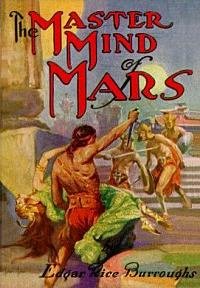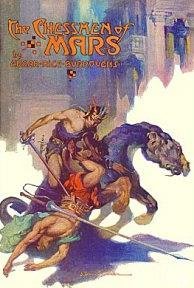Edgar Burroughs - The Moon Maid
Here you can read online Edgar Burroughs - The Moon Maid full text of the book (entire story) in english for free. Download pdf and epub, get meaning, cover and reviews about this ebook. genre: Science fiction. Description of the work, (preface) as well as reviews are available. Best literature library LitArk.com created for fans of good reading and offers a wide selection of genres:
Romance novel
Science fiction
Adventure
Detective
Science
History
Home and family
Prose
Art
Politics
Computer
Non-fiction
Religion
Business
Children
Humor
Choose a favorite category and find really read worthwhile books. Enjoy immersion in the world of imagination, feel the emotions of the characters or learn something new for yourself, make an fascinating discovery.

- Book:The Moon Maid
- Author:
- Genre:
- Rating:3 / 5
- Favourites:Add to favourites
- Your mark:
- 60
- 1
- 2
- 3
- 4
- 5
The Moon Maid: summary, description and annotation
We offer to read an annotation, description, summary or preface (depends on what the author of the book "The Moon Maid" wrote himself). If you haven't found the necessary information about the book — write in the comments, we will try to find it.
The Moon Maid — read online for free the complete book (whole text) full work
Below is the text of the book, divided by pages. System saving the place of the last page read, allows you to conveniently read the book "The Moon Maid" online for free, without having to search again every time where you left off. Put a bookmark, and you can go to the page where you finished reading at any time.
Font size:
Interval:
Bookmark:
The Moon Maid
Edgar Rice Burroughs
Prologue
I met him in the Blue Room of the Transoceanic Liner Harding the night of Mars DayJune 10, 1967. I had been wandering about the city for several hours prior to the sailing of the flier watching the celebration, dropping in at various places that I might see as much as possible of scenes that doubtless will never again be paralleleda world gone mad with joy. There was only one vacant chair in the Blue Room and that at a small table at which he was already seated alone. I asked his permission and he graciously invited me to join him, rising as he did so, his face lighting with a smile that compelled my liking from the first.
I had thought that Victory Day, which we had celebrated two months before, could never be eclipsed in point of mad national enthusiasm, but the announcement that had been made this day appeared to have had even a greater effect upon the minds and imaginations of the people.
The more than half-century of war that had continued almost uninterruptedly since 1914 had at last terminated in the absolute domination of the Anglo-Saxon race over all the other races of the World, and practically for the first time since the activities of the human race were preserved for posterity in any enduring form no civilized, or even semi-civilized, nation maintained a battle line upon any portion of the globe. War was at an end-definitely and forever. Arms and ammunition were being dumped into the five oceans; the vast armadas of the air were being scrapped or converted into carriers for purposes of peace and commerce.
The peoples of all nations had celebratedvictors and vanquished alikefor they were tired of war. At least they thought that they were tired of war; but were they, What else did they know? Only the oldest of men could recall even a semblance of world peace, the others knew nothing but war. Men had been born and lived their lives and died with their grandchildren clustered about themall with the alarms of war ringing constantly in their ears. Perchance the little area of their activities was never actually encroached upon by the iron-shod hoof of battle; but always somewhere war endured, now receding like the salt tide only to return again; until there arose that great tidal wave of human emotion in 1959 that swept the entire world for eight bloody years, and receding, left peace upon a spent and devastated world.
Two months had passedtwo months during which the world appeared to stand still, to mark time, to hold its breath. What now? We have peace, but what shall we do with it? The leaders of thought and of action are trained for but one conditionwar. The reaction brought despondencyour nerves, accustomed to the constant stimulus of excitement, cried out against the monotony of peace, and yet no one wanted war again. We did not know what we wanted.
And then came the announcement that I think saved a world from madness, for it directed our minds along a new line to the contemplation of a fact far more engrossing than prosaic wars and equally as stimulating to the imagination and the nervesintelligible communication had at last been established with Mars!
Generations of wars had done their part to stimulate scientific research to the end that we might kill one another more expeditiously, that we might transport our youth more quickly to their shallow graves in alien soil, that we might transmit more secretly and with greater celerity our orders to slay our fellow men. And always, generation after generation, there had been those few who could detach their minds from the contemplation of massacre and looking forward to a happier era concentrate their talents and their energies upon the utilization of scientific achievement for the betterment of mankind and the rebuilding of civilization.
Among these was that much ridiculed but devoted coterie who had clung tenaciously to the idea that communication could be established with Mars. The hope that had been growing for a hundred years had never been permitted to die, but had been transmitted from teacher to pupil with ever-growing enthusiasm, while the people scoffed as, a hundred years before, we are told, they scoffed at the experimenters with flying machines, as they chose to call them.
About 1940 had come the first reward of long years of toil and hope, following the perfection of an instrument which accurately indicated the direction and distance of the focus of any radio-activity with which it might be attuned. For several years prior to this all the more highly sensitive receiving instruments had recorded a series of three dots and three dashes which began at precise intervals of twenty-four hours and thirty-seven minutes and continued for approximately fifteen minutes. The new instrument indicated conclusively that these signals, if they were signals, originated always at the same distance from the Earth and in the same direction as the point in the universe occupied by the planet Mars.
It was five years later before a sending apparatus was evolved that bade fair to transmit its waves from Earth to Mars. At first their own message was repeatedthree dots and three dashes. Although the usual interval of time had not elapsed since we had received their daily signal, ours was immediately answered. Then we sent a message consisting of five dots and two dashes, alternating. Immediately they replied with five dots and two dashes and we knew beyond peradventure of a doubt that we were in communication with the Red Planet, but it required twenty-two years of unremitting effort, with the most brilliant intellects of two worlds concentrated upon it, to evolve and perfect an intelligent system of inter-communication between the two planets.
Today, this tenth of June, 1967, there was published broadcast to the world the first message from Mars. It was dated Helium, Barsoom, and merely extended greetings to a sister world and wished us well. But it was the beginning.
The Blue Room of The Harding was, I presume, but typical of every other gathering place in the civilized world. Men and women were eating, drinking, laughing, singing and talking. The flier was racing through the air at an altitude of little over a thousand feet. Its engines, motivated wirelessly from power plants thousands of miles distant, drove it noiselessly and swiftly along its overnight pathway between Chicago and Paris.
I had of course crossed many times, but this instance was unique because of the epoch-making occasion which the passengers were celebrating, and so I sat at the table longer than usual, watching my fellow diners, with, I imagine, a slightly indulgent smile upon my lips sinceI mention it in no spirit of egotismit had been my high privilege to assist in the consummation of a hundred years of effort that had borne fruit that day. I looked around at my fellow diners and then back to my table companion.
He was a fine looking chap, lean and bronzedone need not have noted the Air Corps overseas service uniform, the Admirals stars and anchors or the wound stripes to have guessed that he was a fighting man; he looked it, every inch of him, and there were a full seventy-two inches.
We talked a littleabout the great victory and the message from Mars, of course, and though he often smiled I noticed an occasional shadow of sadness in his eyes and once, after a particularly mad outburst of pandemonium on the part of the celebrators, he shook his head, remarking: Poor devils! and then: It is just as welllet them enjoy life while they may. I envy them their ignorance.
What do you mean? I asked.
He flushed a little and then smiled. Was I speaking aloud? he asked.
I repeated what he had said and he looked steadily at me for a long minute before he spoke again. Oh, whats the use! he exclaimed, almost petulantly; you wouldnt understand and of course you wouldnt believe. I do not understand it myself; but I have to believe because I knowI know from personal observation. God! if you could have seen what I have seen.
Font size:
Interval:
Bookmark:
Similar books «The Moon Maid»
Look at similar books to The Moon Maid. We have selected literature similar in name and meaning in the hope of providing readers with more options to find new, interesting, not yet read works.
Discussion, reviews of the book The Moon Maid and just readers' own opinions. Leave your comments, write what you think about the work, its meaning or the main characters. Specify what exactly you liked and what you didn't like, and why you think so.







